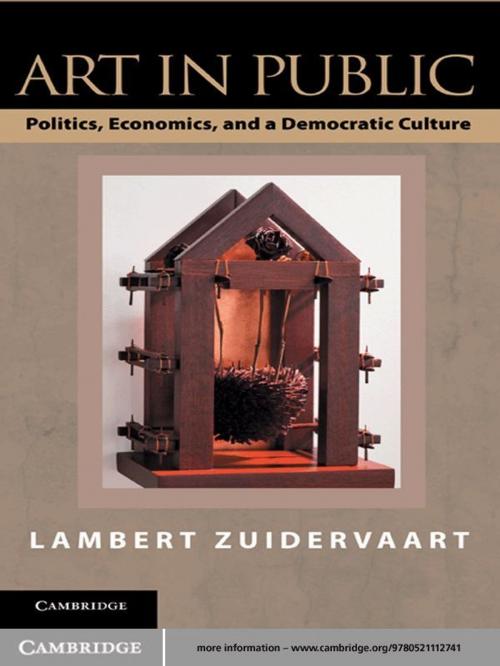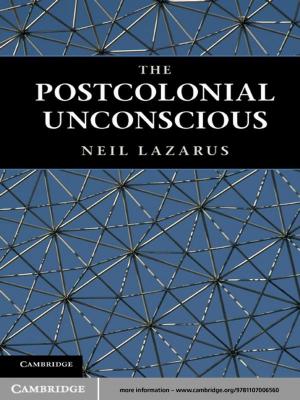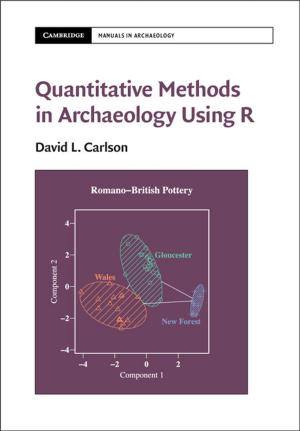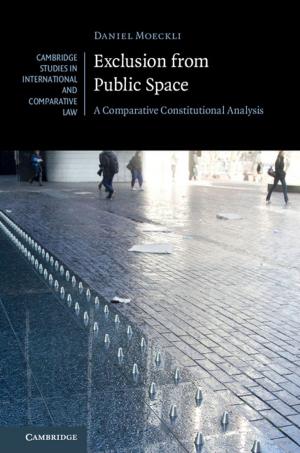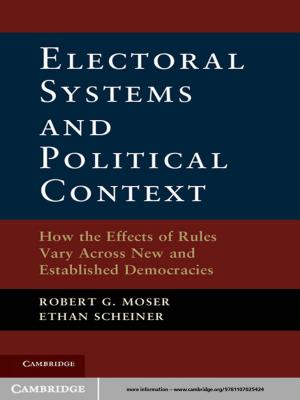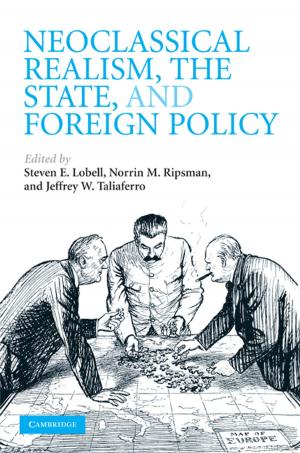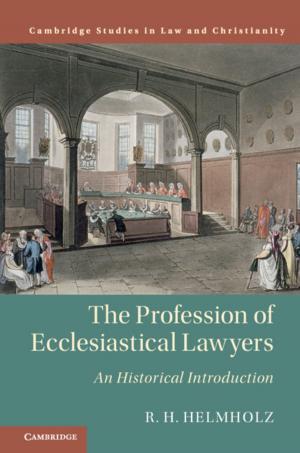Art in Public
Politics, Economics, and a Democratic Culture
Nonfiction, Religion & Spirituality, Philosophy, Political, Art & Architecture, General Art| Author: | Lambert Zuidervaart | ISBN: | 9780511852695 |
| Publisher: | Cambridge University Press | Publication: | November 15, 2010 |
| Imprint: | Cambridge University Press | Language: | English |
| Author: | Lambert Zuidervaart |
| ISBN: | 9780511852695 |
| Publisher: | Cambridge University Press |
| Publication: | November 15, 2010 |
| Imprint: | Cambridge University Press |
| Language: | English |
This book examines fundamental questions about funding for the arts: why should governments provide funding for the arts? What do the arts contribute to daily life? Do artists and their publics have a social responsibility? Challenging questionable assumptions about the state, the arts and a democratic society, Lambert Zuidervaart presents a vigorous case for government funding, based on crucial contributions the arts make to civil society. He argues that the arts contribute to democratic communication and a social economy, fostering the critical and creative dialogue that a democratic society needs. Informed by the author's experience leading a non-profit arts organisation as well as his expertise in the arts, humanities and social sciences, this book proposes an entirely new conception of the public role of art with wide-ranging implications for education, politics and cultural policy.
This book examines fundamental questions about funding for the arts: why should governments provide funding for the arts? What do the arts contribute to daily life? Do artists and their publics have a social responsibility? Challenging questionable assumptions about the state, the arts and a democratic society, Lambert Zuidervaart presents a vigorous case for government funding, based on crucial contributions the arts make to civil society. He argues that the arts contribute to democratic communication and a social economy, fostering the critical and creative dialogue that a democratic society needs. Informed by the author's experience leading a non-profit arts organisation as well as his expertise in the arts, humanities and social sciences, this book proposes an entirely new conception of the public role of art with wide-ranging implications for education, politics and cultural policy.
